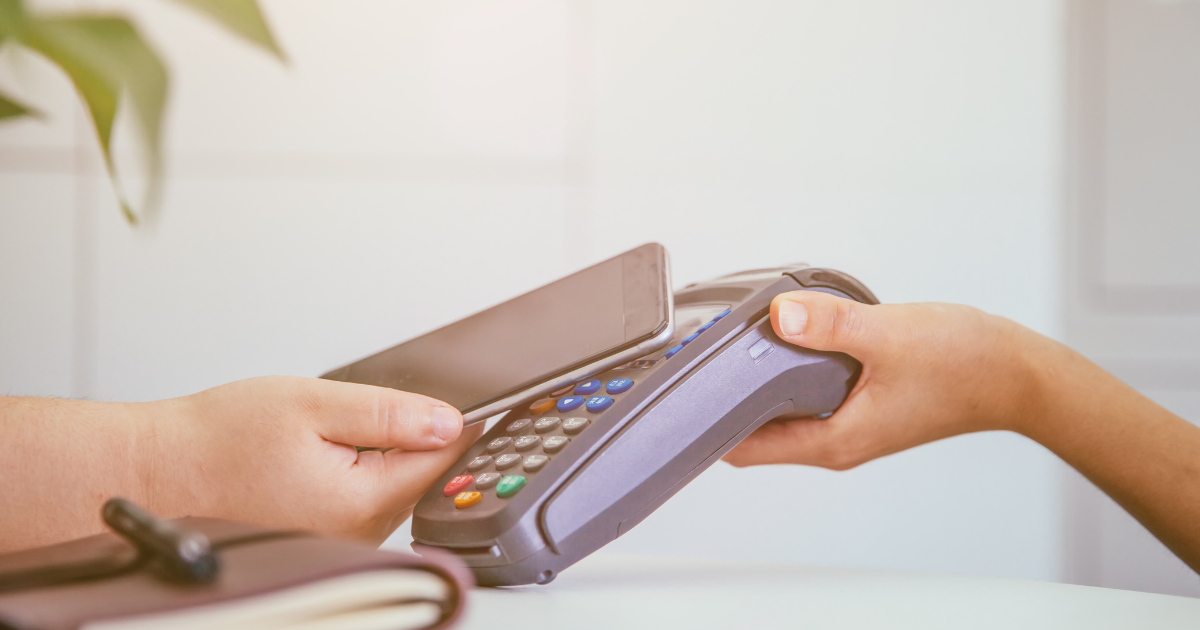With digital transformation impacting every aspect of retail and hospitality, payments analysts are questioning if traditional countertop terminals have a future. Look at how rapidly QR codes have scaled. Here at Nationwide Payment Systems, we started using QR codes 10 years ago when no one even knew what a QR code was and now everyone is getting into the game. In the early days, QR codes were mostly general purpose and today they direct you to a web address.
QR codes are helpful to restaurants that are dealing with unprecedented price changes from their vendors. Most restaurants allow guests to scan a QR code to look at the menu, which enables them to constantly update their prices instead of printing a new menu every week or placing unsightly stickers over prices on their menus, which is not a good look. What happens when someone rips off a label and claims they were overcharged?
QR codes are environmentally friendly and are popping up everywhere, even on restaurant receipts, which direct you to a payment page where you can enter your information and check out. Some of these QR code solutions are integrated it into POS systems and can detect the wallet in your phone and can also accept text and email payments.
Tap and Pay
Near Field Communication, the technology that powers Tap and Pay, has also been around for years but scaled rapidly during the pandemic, when consumers didn’t want to touch the POS. Card manufacturers have added RIFD chips to credit cards to enable contactless transactions and smartphones also have this capability, which means more people are checking out by tapping and not touching the point of sale. You just have to be within an inch of the device when you tap and pay by phone or card.
We rolled NFC back in 2015, maybe even, when the EMV went into effect and younger consumers were beginning to use Apple Pay, Google Pay, and Samsung Pay. Consumers of all ages became interested in tap and pay during the pandemic. And now that everyone is either tapping or dipping at the POS, it’s time for the manufacturers to get rid of the magnetic stripe.
Card issuers are only helping fraudsters with this old technology.
Post-pandemic solutions
Wearables are also big. People are connecting payment cards and bank accounts to watches and bracelets so they can pay with a wearable and not have to carry a wallet. Some hotels allow digital wallet and wearable check-ins by sending a code to an Android or iOS device that opens your hotel door.
From a technology standpoint, the pandemic really stuck a fork in the restaurant and hospitality industries. Restaurants are struggling, dealing with staffing shortages and supply chain issues. Menus are getting smaller and self-attended solutions are picking up the slack by letting guests walk up and order at a screen instead of waiting for a server at a counter or table. Digital services are continuing to scale. In addition, inflation is impacting everyone. People can’t afford to drive to work and electric cars are not going to solve this problem because their batteries and charging stations are prohibitively expensive.
Cyclical economics
I saw the same economic trends in 2008 and 2009 and people are reacting in similar ways. Maybe they are cutting back on discretionary things, like restaurant and salon visits. Maybe they are patronizing less expensive stores and buying mid-tier brands instead of luxury items. Rents are so high that young adults are living with their parents. Just the other day, someone told me, “I got a raise at work but it doesn’t even feel like a raise because everything costs more now: gas, food, everything.”
With all of these changes, business tends to react faster than the government. Merchants are leveraging QR code technology to change their prices, sometimes every day if necessary. And technology helping businesses make these adjustments faster. And despite all these innovations, it’s no surprise that retail, restaurant and even mobile merchants are using traditional POS systems and credit card machines. Because in the payments business, unlike politics, technologies may win the popular vote but they will never fully replace incumbents.
 AUTHOR
AUTHOR
Allen Kopelman
CEO, Nationwide Payment Systems
Allen Co-Founded Nationwide Payment Systems Inc. in 2001, with the plan to sell credit card processing services and equipment to merchants in the South Florida area and provide concierge style service for each client.
The entrepreneurial bug started early in Allen’s life as comes from a family of business owners and learn about business from early age behind the cash registers at his father’s clothing stores in Miami. Later going to Culinary School in Atlanta and being a Chef, in Hotels, Country Clubs, his own restaurant and catering company.
The company started and quickly grew, products were added, processing banks and the company became laser focused on technology that would help merchants. In 2021 the B2B Vault – The Payment Technology Podcast was launched.







